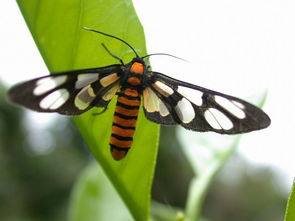
Understanding Poisonous Insect Bites: A Comprehensive Guide
Have you ever found yourself dealing with the discomfort and pain of a poisonous insect bite? If so, you’re not alone. Insect bites can range from mild to severe, and some can even be life-threatening. This article aims to provide you with a detailed and multi-dimensional introduction to poisonous insect bites, covering their causes, symptoms, treatment, and prevention.
Causes of Poisonous Insect Bites

There are several types of insects that can cause poisonous bites, including bees, wasps, ants, and spiders. Here’s a closer look at some of the most common culprits:
| Insect | Common Bites | Location of Bites |
|---|---|---|
| Bees | Sting | Anywhere on the body |
| Wasp | Sting | Anywhere on the body |
| Ant | Sting | Anywhere on the body |
| Spider | Bite | Anywhere on the body |
Bees and wasps are known for their stingers, which they use to inject venom into their victims. Ants, on the other hand, have a barbed stinger that can cause severe pain and swelling. Spiders, particularly the black widow and brown recluse, can deliver venomous bites that can be dangerous if not treated promptly.
Symptoms of Poisonous Insect Bites

The symptoms of a poisonous insect bite can vary depending on the type of insect and the individual’s sensitivity. Common symptoms include:
- Pain and swelling at the bite site
- Redness and warmth around the bite
- Itching and irritation
- Difficulty breathing (in severe cases)
- Nausea and vomiting
- Severe allergic reactions, such as anaphylaxis
In some cases, the symptoms may appear immediately after the bite, while in others, they may take several hours to develop. It’s important to monitor the bite site and seek medical attention if symptoms worsen or if you experience difficulty breathing, swelling of the throat, or hives.
Treatment of Poisonous Insect Bites

Most poisonous insect bites can be treated at home with basic first aid measures. Here are some tips for dealing with a poisonous insect bite:
- Remove the stinger if it’s still in place
- Clean the bite site with soap and water
- Apply a cold compress to reduce swelling and pain
- Take over-the-counter pain relievers, such as ibuprofen or acetaminophen
- Keep the bite site elevated to reduce swelling
In severe cases, you may need to seek medical attention. Treatment options may include:
- Antihistamines to reduce swelling and itching
- Oral corticosteroids to reduce inflammation
- Antivenom for venomous spider bites
- Antibiotics for secondary infections
Prevention of Poisonous Insect Bites
Preventing poisonous insect bites is the best way to avoid the discomfort and potential dangers associated with these bites. Here are some tips for staying safe:
- Wear protective clothing when working in areas where insects are present
- Use insect repellent containing DEET or picaridin
- Keep your home and yard free of insects by sealing cracks and crevices
- Avoid wearing bright colors or fragrances that may attract insects
- Be cautious when handling bees, wasps, ants, and spiders
By understanding the causes, symptoms, treatment, and prevention of poisonous insect bites, you can better protect yourself and your loved ones






